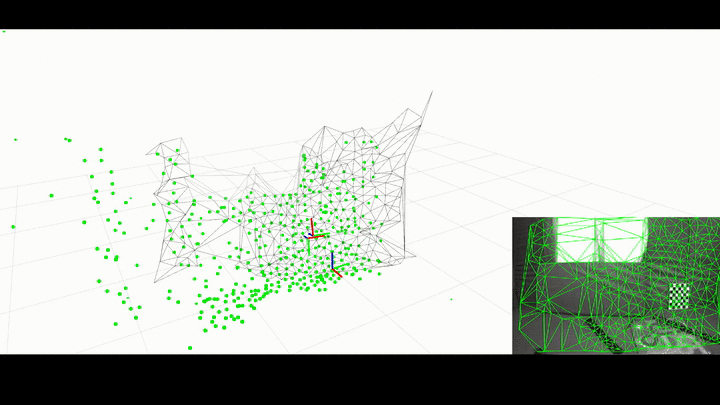ROS Wrapper for Kimera.
We kindly ask to cite our paper if you find this library useful:
- A. Rosinol, M. Abate, Y. Chang, L. Carlone. Kimera: an Open-Source Library for Real-Time Metric-Semantic Localization and Mapping. arXiv preprint arXiv:1910.02490.
@misc{Rosinol19arxiv-Kimera,
title = {Kimera: an Open-Source Library for Real-Time Metric-Semantic Localization and Mapping},
author = {Rosinol, Antoni and Abate, Marcus and Chang, Yun and Carlone, Luca},
year = {2019},
eprint = {1910.02490},
archiveprefix = {arXiv},
primaryclass = {cs.RO},
url = {https://github.com/MIT-SPARK/Kimera},
pdf = {https://arxiv.org/pdf/1910.02490.pdf}
}-
Install ROS by following our reference, or the official ROS website.
-
System dependencies: First, update package list:
sudo apt-get update
sudo apt-get install -y --no-install-recommends apt-utils
sudo apt-get install -y \
cmake build-essential unzip pkg-config autoconf \
libboost-all-dev \
libjpeg-dev libpng-dev libtiff-dev \
# Use libvtk5-dev, libgtk2.0-dev in ubuntu 16.04 \
libvtk6-dev libgtk-3-dev \
libatlas-base-dev gfortran \
libparmetis-dev \
python-wstool python-catkin-tools \- GTSAM's Optional dependencies (highly recommended for speed)
Install Intel Threaded Building Blocks (TBB):
sudo apt-get install libtbb-dev
# Setup catkin workspace
mkdir -p ~/catkin_ws/src
cd ~/catkin_ws/
catkin init
catkin config --cmake-args -DCMAKE_BUILD_TYPE=Release
# On Ubuntu 16.04:
# catkin config --cmake-args -DCMAKE_BUILD_TYPE=Release -DGTSAM_USE_SYSTEM_EIGEN=ON
catkin config --merge-devel
# Add workspace to bashrc for automatic sourcing of workspace.
echo 'source ~/catkin_ws/devel/setup.bash' >> ~/.bashrc
# Clone repo
cd ~/catkin_ws/src
git clone git@github.com:MIT-SPARK/Kimera-VIO-ROS.git
# Install dependencies from rosinstall file using wstool
wstool init # Use unless wstool is already initialized
# For ssh:
wstool merge Kimera-VIO-ROS/install/kimera_vio_ros_ssh.rosinstall
# For https
# wstool merge Kimera-VIO-ROS/install/kimera_vio_ros_https.rosinstall
# Finally, download and update repos:
wstool updateFinally, compile:
# Compile code
catkin build
# Refresh workspace
source ~/catkin_ws/devel/setup.bashDownload a Euroc rosbag: for example V1_01_easy.
-
As a general good practice, open a new terminal and run:
roscore -
In another terminal, launch KimeraVIO ROS wrapper:
roslaunch kimera_vio_ros kimera_ros_euroc.launch- In another terminal, launch rviz for visualization:
rviz -d $(rospack find kimera_vio_ros)/rviz/kimera_vio_euroc.rvizNote: this rviz configuration makes use of a rviz plugin: mesh_rviz_plugins. To visualize the textured 3D mesh, clone this plugin to your catkin workspace and catkin build it (note that this should be done automatically via
wstool).
- Finally, in another terminal, launch the downloaded Euroc rosbag:
rosbag play --clock /PATH/TO/EUROC_ROSBAGNote that you will need to both source ROS and your
catkin_wsfor each new terminal unless you added the following lines to your~/.bashrcfile:source /opt/ros/melodic/setup.bash # Change `melodic` for your ROS distribution. source ~/catkin_ws/devel/setup.bash # Change `bash` to the shell you use.
In this mode, the provided rosbag will be first parsed and then sent to the VIO for processing. This is particularly useful when debugging to avoid potential ROS networking issues.
- To run, launch the KimeraVIO ROS wrapper with the
onlineparameter set tofalseand specify the rosbag's path:
roslaunch kimera_vio_ros kimera_vio_ros_euroc.launch online:=false rosbag_path:="PATH/TO/ROSBAG"The launch file and parameters can also be configured for other datasets. For example, here we provide a kitti rosbag for testing. To run, in one terminal, launch the Kimera ROS wrapper with the launch file we configured for kitti:
roslaunch kimera_vio_ros kimera_vio_ros_kitti.launch
- In another terminal, launch a Kitti rosbag:
rosbag play --clock /PATH/TO/KITTI_ROSBAG
- In rviz, you can use the provided config file provided at rviz/kimera_vio_kitti.rviz
rviz -d $(rospack find kimera_vio_ros)/rviz/kimera_vio_ros_kitti.rvizSee the documentation on hardware setup for instructions on running KimeraROS on supported hardware platforms, as well as guides on how to develop for other platforms.
KimeraVIO ROS wrapper is open source under the BSD license, see the LICENSE.BSD file.
